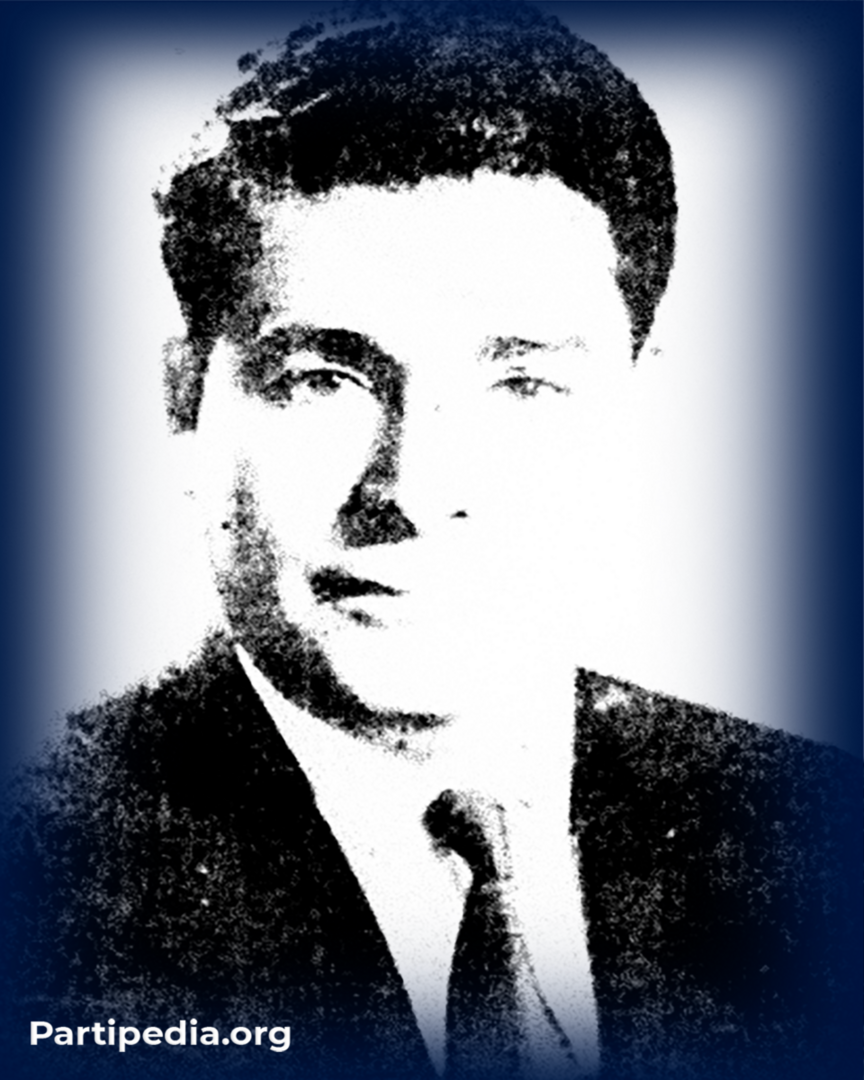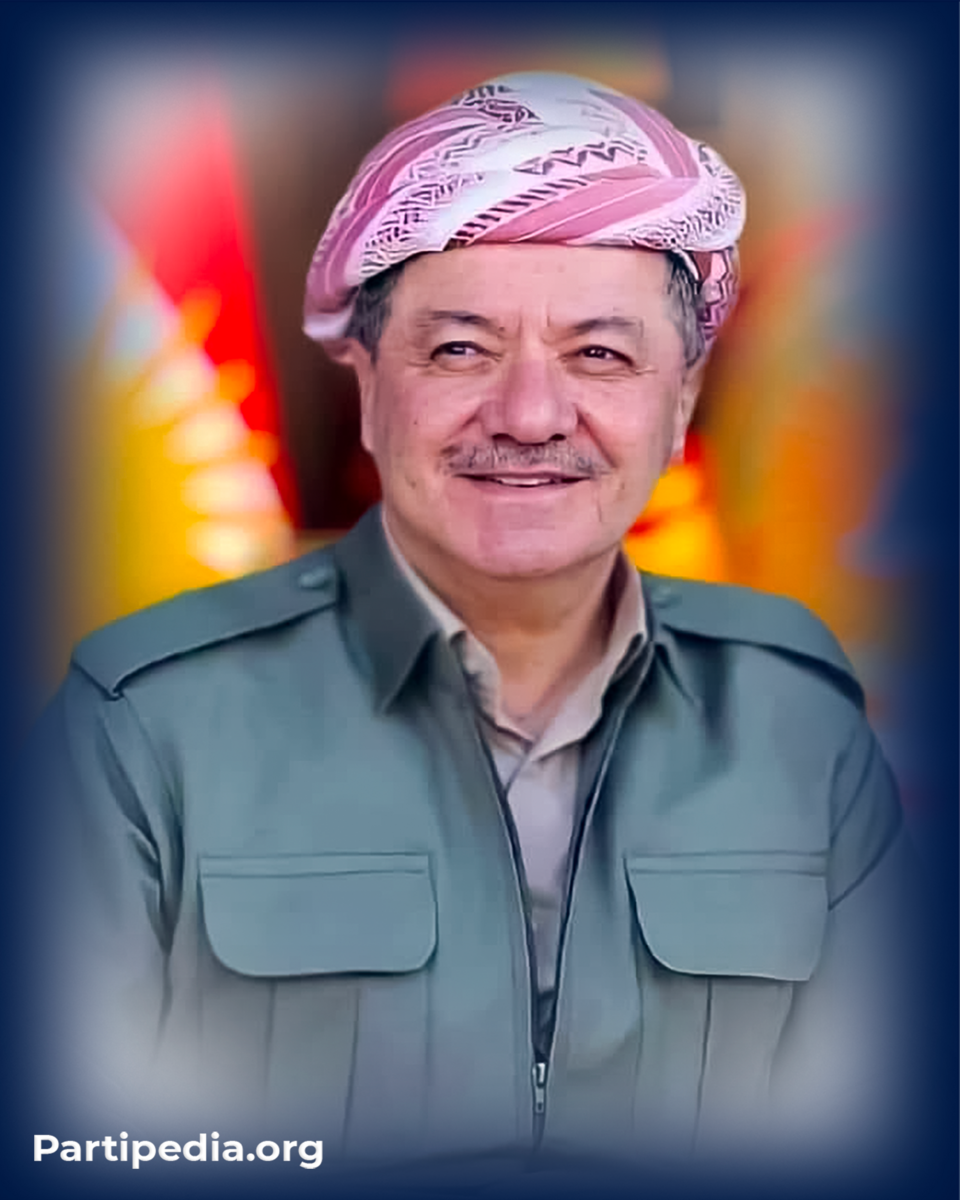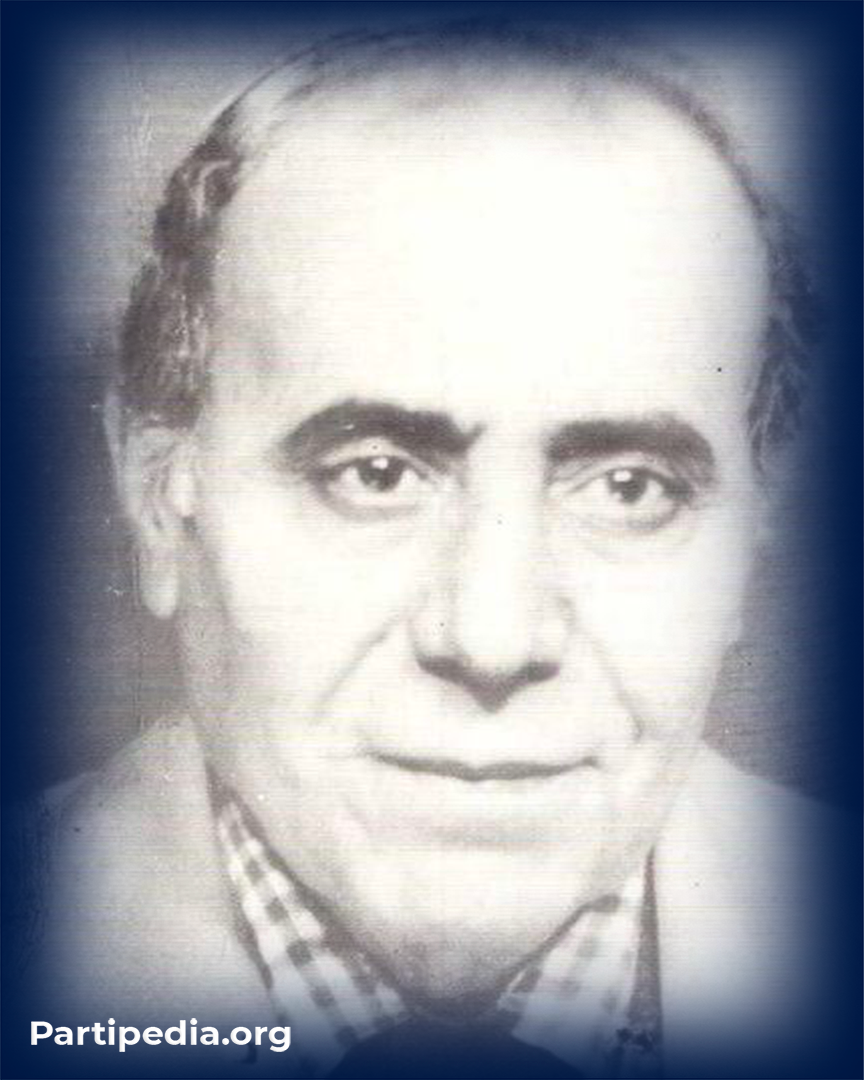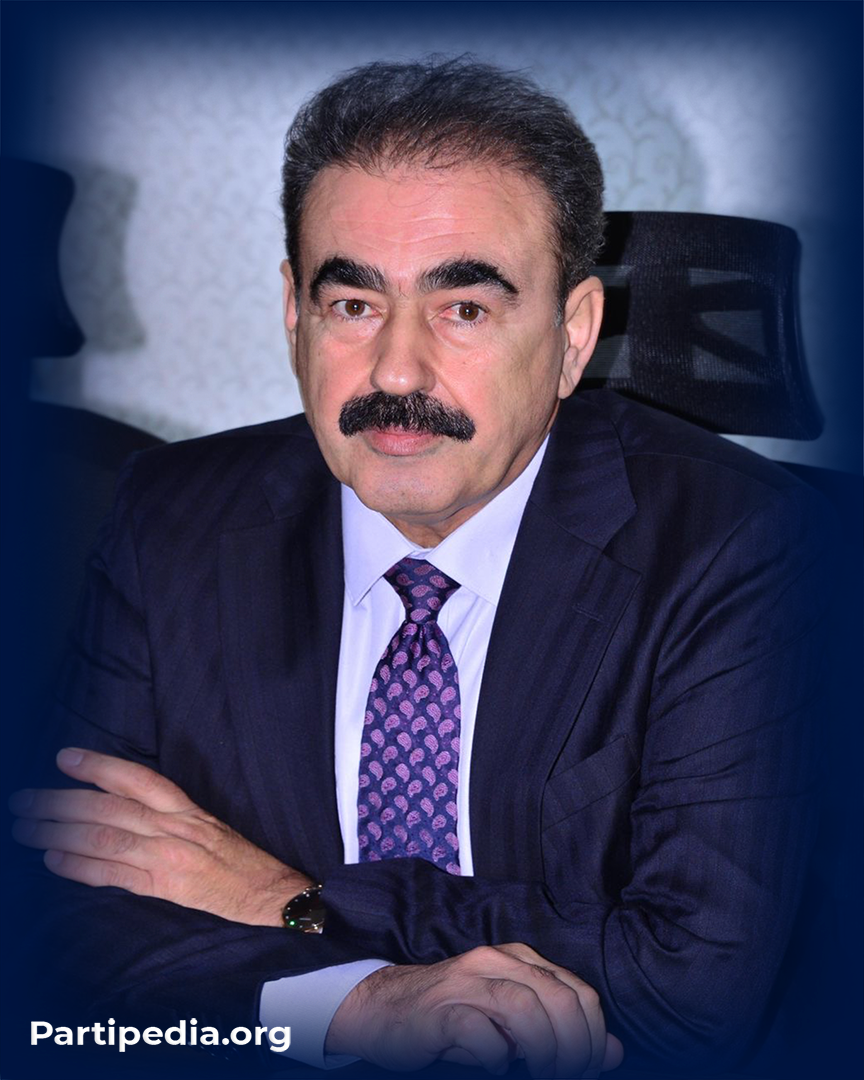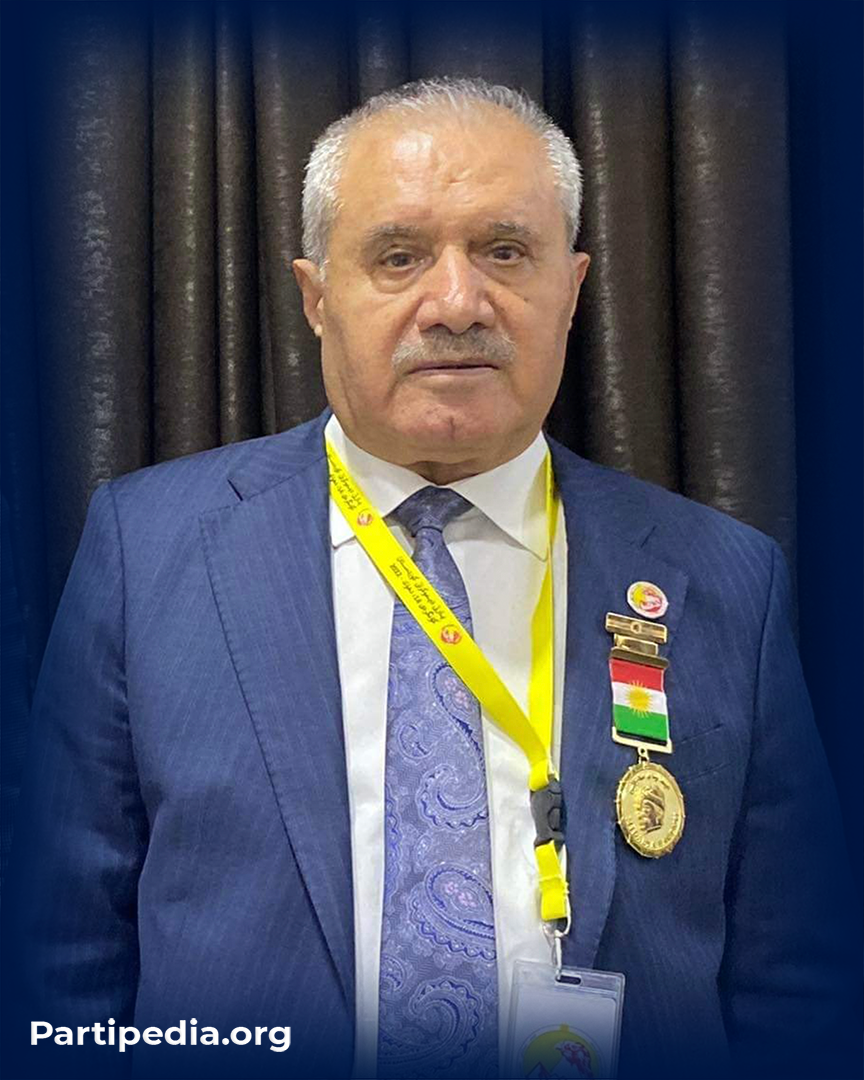Awni Yousef Ahmad Qasim, also known as Awni Qazi, was elected a member of the Central Committee of the Kurdistan Democratic Party (KDP) in 1946 by the delegates of the congress. In 1974, after the complicated situation between the Kurdistan Democratic Party (KDP) and the Ba'ath Party, he joined the Peshmerga forces. Moreover, he was fluent in Kurdish, Turkish, Arabic and English.
Biography
Judge Awni Yousef Ahmad Qasim, also known as Awni Qazi, was born in 1908 in Erbil. Yousef Effendi was his father and the judge of Erbil. He began his religious education with his father and Shahbaz Effendi Haideri. Then, in 1921 he completed his primary education in Erbil and moved to Baghdad to study. After that, in 1934 he graduated from Baghdad Central Secondary School. In the same year, he was admitted to Baghdad College of Law. In 1939, he received a bachelor's degree in law from Baghdad College of Law. Additionally, he became a member of the Iraqi Bar Association in 1940, first in Sulaimani, and later He started working as a lawyer in Erbil.
In 1942 he was a judge in Zakho town of Mosul province. In 1942 he was transferred to Mosul as a judge. Then, in 1943 he was transferred to Basra in southern Iraq. However, before he reached his destination, he was captured in Erbil. After that, he was transferred to Mosul and sentenced to three years in prison. In 1946, he worked as a lawyer.
He was a refugee in Iran in 1974-1975. Then he returned to Southern Kurdistan in 1975. He died on July 15, 1988, in Ibn Baytar Hospital in Baghdad and was buried in the municipal cemetery in Erbil. in mid-July 1994, the Erbil Municipal Council decided to name one of the streets after him. Auni was fluent in Kurdish, Turkish, Arabic and English.
Service Record
In 1939, he participated in the student protests in Baghdad against the authorities of the Kingdom of Iraq and the United Kingdom. He also became a member of the Kurdish Hope Party. Then, in 1940 he was admitted as a member of the Iraqi Bar Association For supporting the Rashid Ali movement (1893-1965). Auni was arrested by the Iraqi authorities at the request of the British authorities. In 1942, he was expelled from Sulaimani by the governor of Sulaimani for his activities.
In 1942, he founded the Mosul branch of the Kurdish Hope Party with Dr. Jaafar Mohammed Karim, also known as Dr. Jaafar Faily. In 1942, he was imprisoned with Dr. Jaafar Faily for Kurdishness in Ammar prison in southern Iraq. Moreover, from 1944-1945, he translated articles for the Kurdish magazine Galawezhi, which was published in Baghdad.
He was imprisoned in Kut prison on September 29, 1945, for supporting the Second Barzan Revolution (1943-1945). He then was released in 1946 from Ammar prison in southern Iraq. In 1946 Auni was appointed member of the Central Committee of the Democratic Party by congress delegates. In the same year, he was one of the officials of the Kurdish Democratic Party in Erbil province. Moreover, in 1947, he requested official permission from the governor of Erbil to celebrate Newroz, although he was opposed by prime minister Nuri al-Saeed, but after many meetings and efforts, the prime minister agreed.
Auni attended the funeral of martyr Khayrullah Abdulkarim Abdullah (1912-1947), also known as Khayrullah Gurjizadeh, in Erbil. In 1948, he received official permission from the Iraqi authorities to celebrate Newroz in Erbil. In the same year, as a representative of Erbil province, he participated in the protests against the treaty of Portsmouth in Baghdad.
In 1948, his house was shot at by the men in power. Abbas Mamend Agha of Sarkapkan and Sayyid Ahmadi Sayyid Tahai Nahri supported him to end the conflict. In the spring of 1948, he became a leader in an Erbil protest against the authorities and carried the slogan "Free the Barzanis". Moreover, on May 24, 1948, he was arrested by the Iraqi authorities for his Kurdish activities and tried on July 20, 1948.
In late 1949, he was named as a leader of the Kurdish Democratic Party by Yehuda Ibrahim Sadiq. Auni was revealed as a fighter in his confessions before the Criminal Investigation Directorate. In 1949, he was sentenced to one and a half years in prison by the customary court. He then was imprisoned in Kut prison for a while.
In the spring of 1950, he participated in the school activities in Erbil and supported Nahidah Salam. He participated in the protest of November 20, 1952, in Erbil and was arrested by the police a day later. After that, in 1953 he was under strict surveillance by the Iraqi secret police. On March 21, 1953, he delivered the first speech at the opening of the Newroz celebrations in Erbil.
Auni volunteered in the uprising of the peasants of the Erbil Plain against the nobles, and he worked as a lawyer for the prisoners. Moreover, in 1954, he ran for the Iraqi parliament and was opposed by the wing of lawyer Ibrahim Ahmad (1914-2000). In the same year, he was briefly imprisoned by the Iraqi authorities in Erbil. Then again in 1954, he hid in the house of Abbas Mamend Agha of Sarkabkan and Mullah Osmani Plingan (1990-1982).
He helped the Bruski Sports Club in Erbil in 1958. On July 14, 1958, he encouraged the governor of Erbil, Khalid Naqshbani (1916-1961) to support the fall of the Iraqi monarchy. He was later appointed a member of the Iraqi Sovereign Council. On July 14, 1958, he led a protest in support of the fall of the monarchy in Erbil.
In July 1958, he accompanied Sheikh Ahmad Sheikh Mohammed Sheikh Abdulsalam (1892-1969), also known as Sheikh Ahmadi Barzan, to visit Shaqlawa town in Erbil province. On November 22, 1958, he was appointed a judge in the Civil Court by a republican decree on November 22, 1958. In 1958, he was the president of the Kirkuk Court of Appeal. Then on September 14, 1958, Auni was appointed as Minister of Labor and Housing in the cabinet of Abdul Karim Qasim (1914-1963).
On July 27, 1958, he visited the Ministry of Defense with a Kurdish delegation to congratulate the Iraqi army on overthrowing the Iraqi monarchy. On July 1, 1959, he accompanied President Mustafa Barzani to visit the headquarters of the United Kurdistan Democratic Party in Baghdad. On July 16-17, 1959, he was a representative of the second congress of the Iraqi Peace Movement in Baghdad.
In 1959, he was elected as a member of the Central Committee of the Kurdistan Democratic Party (KDP) (Fourth Congress). Then in 1959, he became the deputy president of the Kirkuk Court of Appeal (Tamiz). After that in 1959, he was a member of the committee to purge the supporters of the monarchy in the Iraqi judiciary. In 1959, after the failure of the Iraqi National Defense Forces, at the request of Prime Minister Zaim Rukan Abdul Karim Qassim, he participated in the suppression of the uprising of Sheikh Rashid Lolan. In mid-1959, he was the Iraqi Minister of Housing and Commerce. In 1960, he was elected a member of the Central Committee of the Kurdistan Democratic Party (KDP) (Fifth Congress). On July 17, 1959, he became a delegate to the Second Congress of the Iraqi Peace Movement in Baghdad. On December 30, 1959, he sent a letter of good health to Zaim Rukan Abdul Karim Qasim on the occasion of his medical treatment and discharge from the hospital after the terrorist attack by the Baath Party in Baghdad.
In November 1960, he resigned as a minister and returned to his former job as a lawyer in Baghdad province. On October 21, 1961, he was appointed as a representative of the Iraqi Lawyers Congress in Baghdad.
In 1961, he opposed the revolution in southern Kurdistan and considered the situation unfavorable. In May 1962, he signed the declaration "Peace for Kurdistan" prepared by the Iraqi Communist Party and the Iraqi National Party. Moreover, in 1963 he joined the ranks of the Peshmerga forces and served in the liberated areas of Sulaimani province. In 1964 he was a delegate to the sixth congress of the Kurdistan Democratic Party (KDP) in Qaladze town of Sulaimani province.
In mid-1966, he was appointed by the Central Committee of the Kurdistan Democratic Party (KDP) as a member of the Preparatory Committee for the Seventh Congress. Then In 1966, he ran for the seventh congress of the Kurdistan Democratic Party (KDP) in Galala village of Erbil province, and he didn’t get the position. After that in 1969, he left the September Revolution and founded the Liberation Party with the help of lawyer Saleh Haider Assem (1922-2001), also known as Saleh Haidari, and Hamid Osman Abubakr (1927-1993). However, after the agreement of March 11, 1970, the party was dissolved. In 1974, after the situation between the Kurdistan Democratic Party and the Ba'ath Party became complicated, he joined the Peshmerga forces.
Sources:
-
شوان محهمهدئهمین تهها خۆشناو، ههولێر له نێوان ساڵانی (١٩٥٨ ـ ١٩٦٣) لێكۆڵینهویهكه له بارودۆخی سیاسی، (ههولێر ـ چاپخانهی ڕۆژههڵات ـ ٢٠١٢ز)، ل ل ٧٨، ٨٣، ٩١، ١٠٨، ١٥٨، ١٨٦، ٢٣٤.
-
شوان محهمهدئهمین تهها خۆشناو، ههولێر له نێوان ساڵانی ١٩٦٣ ـ ١٩٧٠ لێكۆڵینهوهیهكی مێژووییه له بارودۆخی سیاسی، (ههولێر ـ چاپخانهی زانكۆی سهڵاحهددین ـ ٢٠١٦ز)، ل ل ٥١، ٥٧، ٦٩، ٣٠٣.
-
كریم شارهزا، محطات من حیاة عوني یوسف (١٩٠٨ ـ ١٩٨٨)، مجلة زاگروس، وزارة الثقافة ـ أقلیم كردستان، مطبعة وزارة الثقافة، العدد ١٣، أربیل، ٢٧ كانون الأول ١٩٩٨م، ص ٣٠.
-
تۆفیقی مهلا سدیق، بیرهوهریهكانی ڕۆژانی حیزبایهتی و پێشمهرگایهتی و دوور خرانهوهم، چاپی دووهم، (ههولێر ـ چاپخانهی شههاب ـ ١٩٩٦ز)، ل ل ٦١، ٦٢.
-
جمیل حسین الجبوري، كبار ساسة العراق في العصر الجمهوري ١٩٥٨ ـ ٢٠٠٣، الجزء الاول، (القاهرة ـ المكتب العربي للمعارف ـ ٢٠١٨م)، ص ص ٢٢٥ ـ ٢٢٦.
-
ئامادهكردنی : مهلا بهختیار، عهریف سلێمان، له دهنكهوه بۆ گوڵهگهنمهكان، بهرگی یهكهم، چاپی دووهم، (ههولێر ـ چاپخانهی هاوسهر ـ ٢٠٠٧ز)، ل ل ٤١، ٤٥ ـ ٤٦، ٤٨.
-
ئـ.د.ئـ، فایلی ژماره ٢٤-FB، دهقی چاوپێكهوتن لهگهڵ بهیان عهونی یوسف لهلایهن دڵنیا ڕهوهند، پیرمام، ٣٠ ئایاری ٢٠١٧ز، ل ل ١ ـ ٥.
-
شۆڕش ئهحمهد گهرمیانی، گوڵبژێرێك له ناودارانی كورد، (سلێمانی ـ خانهی چاپ و بڵاوكردنهوهی چوارچرا ـ ٢٠١٣ز)، ل ٢٣٤.
-
طارق جامباز، حزبی هیوا له لیوای ههولێر، (ههولێر ـ گۆڤاری یاساپارێزی ـ ٢٠٠٥ز)، ل ل ٣٧، ٣٩، ٨٦، ١٢٠.
-
علی عبدالله، مێژووی پارتی دیموکراتی کوردستان ـ عێراق تا بهستنی كۆنگرهی سێیهمی، (بێ شوێن ـ ئهیلولی ١٩٦٨ز)، ل ٦٣.
-
گۆڕهپان و شهقامی عهونی یوسف، ڕۆژنامهی كوردستانی نوێ، ئۆرگانی یهكێتیی نیشتمانیی كوردستان، ژماره ٧٣٤، ساڵی سێیهم، ههولێر، دووشهمه، ١٨ تهموزی ١٩٩٤ز، ل ٥.
-
مرسوم جمهوري رقم ٥٠١، جریدة الوقائع العراقیة، وزارة الارشاد في العراق، العدد ١٠٢، السنة الأولی، بغداد، مطبعة الحكومة، الأربعاء، ٣١ كانون الأول ١٩٥٨م، ص ٣.
-
مسعود البارزاني، البارزاني والحركة التحرریة الكردیة، المجلد الأول، الطبعة الثانیة، (بیروت ـ كاوا للثقافة الكردیة ـ ١٩٩٧م)، ص ٢١٧.




